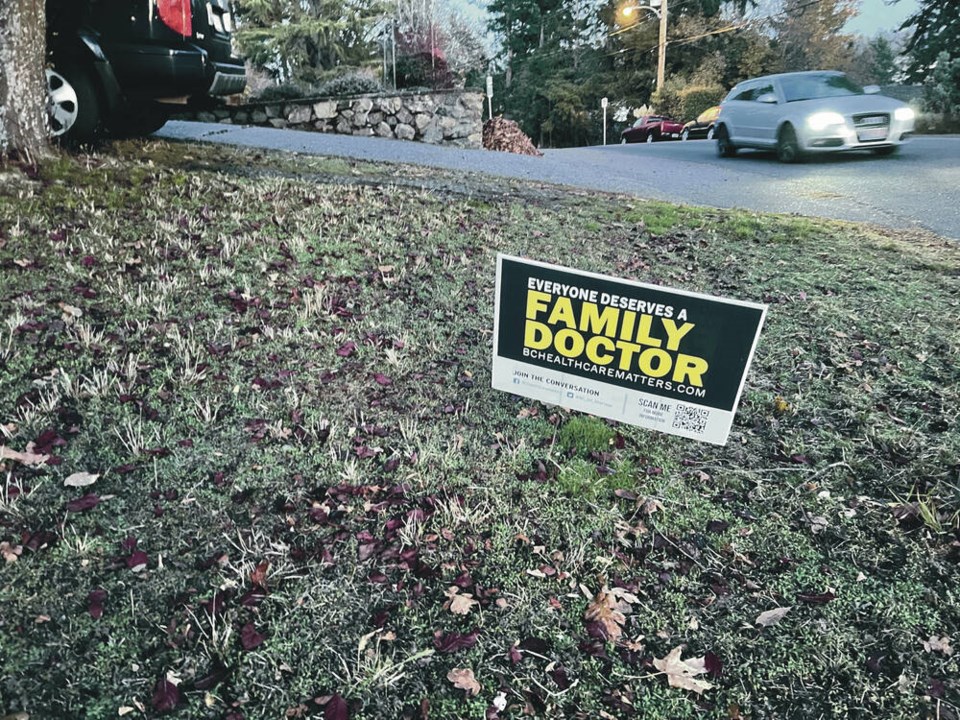It is now apparent that the national shortage of physicians cannot be solved merely by expanding medical school spaces, as several provinces, B.C. among them, are trying to do.
The reason is simple. Recent studies show that by 2028, Canada will be short some 44,000 physicians. Family doctors will make up 70 per cent of that number. However country-wide, Canada’s 17 medical schools graduate only 3,000 doctors a year.
Double that output and we won’t come close to filling the gap.
It is evident that more radical measures are required, and quickly.
And indeed there are steps we could take. But to do so, our ministers of health must be willing to confront the physician licensing authorities that stand in the way.
It is nearly unbelievable that thousands of Canadians studying or practising medicine abroad are prevented, in large degree, from returning home by sheer bureaucratic obstructionism.
First, the numbers. According to the Society Of Canadians Studying Medicine Abroad, there are more than 4,000 Canadians studying medicine at foreign schools.
In the U.S. alone, thousands more have already completed their training, gained a licence to practice, and begun working there.
Many of these Canadians wish to return home and practice here.
But now, the obstacles.
If you’re a Canadian specialist practising in the U.S. (or Britain, Australia, New Zealand and a handful of other top-rated countries), and you want to come home, here are the barriers you face:
First, your application must be vetted and approved by the Royal College of Physicians and Surgeons of Canada (RCPSC) to determine whether Canadian training standards were met.
Many specialists fail this vetting procedure, for no better reason than that other countries configure their training programs differently.
There is no question of these programs being inadequate or failing to meet appropriate standards. They are simply different in minor degrees, with the difference often being merely one of terminology.
However, if you pass that screen, you have to take the RCPSC certification exam, and here the obstructionism becomes unmistakable.
If you’re Canadian-trained, before taking the exam you’re allowed to see prior copies to practice on. That’s a huge advantage. You know what’s coming.
However if you’re foreign-trained, you are not permitted this help, with the result that numerous top-ranked specialists fail the exam. Many don’t even bother applying.
If you are a family doctor trained abroad, you don’t have to take the RCPSC exam, but you do have to satisfy the licensing authority in the province you want to come home to.
Each province has its own College of Physicians and Surgeons, as these licensing bodies are called, and each has its own way of doing things.
For instance, when the B.C. College reviews your application, it demands that you have completed a two-year residency, which means working under the supervision of a licensed doctor.
But many countries require shorter residencies, and fill in the gap with other training schemes.
Too bad. No two-year residency, no licence.
The Colleges say they are just keeping up standards.
What they are really doing is protecting their own members from foreign competition. This is a rerun of the 1990s, when physician groups lobbied provincial governments to cut down training spaces to avoid “flooding” the market.
Are we really saying that doctors trained in Britain or Australia aren’t good enough to work here without months or years of additional training?
Perhaps if our country’s health-care system was operating at the highest of standards, we could afford this conceit.
As it is, Premier David Eby has shown himself unafraid to confront vested interests.
Let him confront these.
>>> To comment on this article, write a letter to the editor: [email protected]



